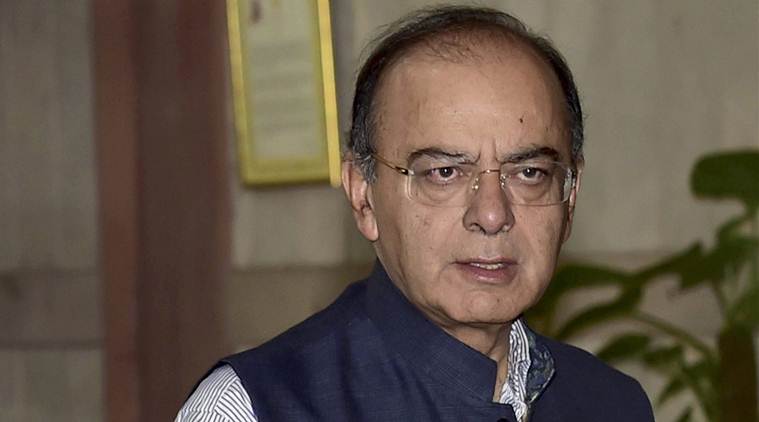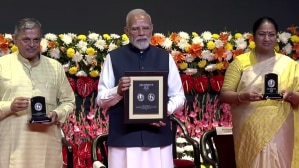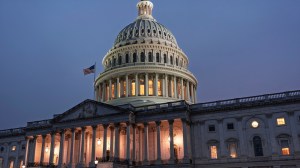Stressed assets have economic value: Arun Jaitley
To resolve non-performing loans, the RBI has recently directed banks to refer 12 large NPA cases for resolution under the Insolvency and Bankruptcy Code. The 12 troubled companies being referred to NCLT under the RBI directive account for a combined debt of around Rs 2.5 lakh crore.
 Arun Jaitley said that stressed assets in the banking system have inherent economic value, which can be turned around to raise national output. (PTI Photo, File)
Arun Jaitley said that stressed assets in the banking system have inherent economic value, which can be turned around to raise national output. (PTI Photo, File)
In a meeting with representatives of asset reconstruction companies and private equity firms on Saturday, finance minister Arun Jaitley said that stressed assets in the banking system have inherent economic value, which can be turned around to raise national output. “…Accounts classified as impaired/stressed still have inherent value. These were essentially productive assets which if turned around would not only create additional jobs but also contribute to national output. For this to happen, timely interventions, transparent price discovery and right management were required,” Jaitley said in the meeting, according to a statement issued by the finance ministry on Saturday.
He said that opportunities presented by the Insolvency and Bankruptcy Code (IBC) framework and the government’s emphasis on resolution represent a unique opportunity for ARCs and PE firms. The government last year enacted the IBC and earlier this year empowered the Reserve Bank of India to direct banks to initiate insolvency proceedings against large loan defaulters. The Gross NPA of banks has risen to 9.6 per cent in March 2017 from 9.2 per cent in September 2016, as per the RBI data. The stressed advances ratio declined marginally from 12.3 per cent to 12.0 per cent due to fall in restructured standard advances, especially in agriculture, services and retail sectors, the data showed.
To resolve non-performing loans, the RBI has recently directed banks to refer 12 large NPA cases for resolution under the Insolvency and Bankruptcy Code. The 12 troubled companies being referred to NCLT under the RBI directive — including Jyoti Structures, Bhushan Steel, Monnet Ispat and Electrosteel Steels, Amtek Auto and Era Infra Engineering among others — account for a combined debt of around Rs 2.5 lakh crore.
As regards the non-performing accounts other than the large 12 cases, an RBI committee suggested that banks should be required to file for insolvency proceedings under the IBC for these accounts in case banks are unable to agree upon a viable resolution plan within six months.
Jaitley noted that the government has taken a series of steps to promote asset recast firms and resolve stressed loans. These include 100 per cent foreign direct investment in ARCs, allowing trading of security receipts issued by such companies, pass through status to ARC trusts for income tax and exemption from stamp duty among other. He said a number of new ARCs have sought and obtained registration during recent months.
“The increasing number of players in the market was indicative of an increasing interest in the sector but also presented an opportunity for banks to offload stressed assets before fully provisioning for them. The ratio of cost of acquisition to book value of assets acquired by ARCs has been rising. Within this overall context, the ARCs and PE funds were well placed to step up their activity levels as all the building blocks were there,” he said.
During the meeting, ARCs suggested that sale of project loan by a consortium instead of individual banks selling their loan account could be a much more effective way of ensuring debt aggregation in a timely manner. The need for evolution of targeted case specific solution by ARCs and PE funds was also discussed.



- 01
- 02
- 03
- 04
- 05




























